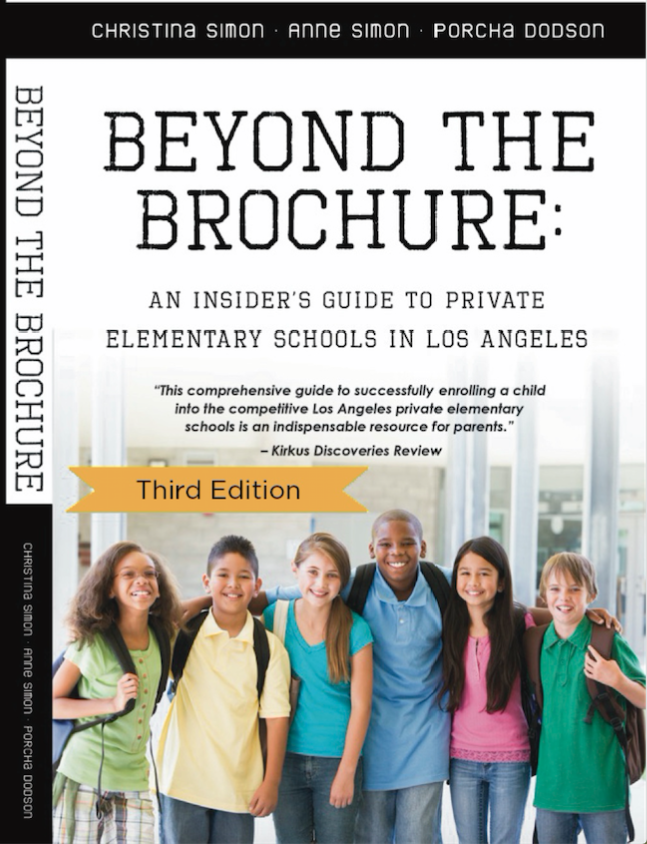
We’re pleased to welcome Sanjay Nambiar back to Beyond The Brochure. His reassuring advice and excellent tips are always a hit with our readers. In addition to offering suggestions for what to do the summer before September admissions begins, Sanjay highlights some of the most important steps in the process. –Christina
Take Advantage of Your Summer Before Application Craziness Begins!
Summer. It’s time for vacations, pool days, backyard cookouts, and general laziness. But wait, let’s not get too far ahead of ourselves . . .
In late summer/early fall, the private school admissions season begins in earnest. That’s that time to fill out inquiry forms online, set up school tours, sign up for open houses, and begin working on applications when possible. When these balls start rolling, it can get hectic and stressful quite quickly; or, you can approach it with a slow and steady mindset.
That’s why we love starting in the summer. Because in June and July, in between your trips and relaxing weekends, you actually can start preparing for your admissions process – at your leisure and with less stress. And when you can do that, you get ahead of the curve and make the rest of the admissions process that much easier.
A Summer Checklist: June-July-August
As you contemplate the daunting admissions season that’s just a few months away, consider doing the following to ease yourself into the mindset of applying.
1. Think about your child
- Far before you start looking at schools, spend a good amount of time thinking about your child and the type of student he or she is.
- Does your child thrive with structure or in more free-form environments. Is she competitive and a good fit for rigorous academics?
- Does he enjoy the creative arts and settings where he can get to the next level in fine art, acting, singing, or music?
- How important are athletics?
- What types of parents do you want to engage with and possibly befriend?
- Are you interested in K-12, K-8, or K-6? (See our previous post that addresses the pros and cons of each.)
2. Pick your schools
- If you haven’t done so already, start narrowing down the schools you want to apply to.
- Visit their websites, fill out and submit inquiry forms, and get a feel for the culture and academic approach.
- Think about locations and possible commute times or school bus schedules.
- Create a spreadsheet or tracking system to organize your thoughts about each school (strengths, weaknesses, how it fits your family, how it doesn’t, culture, extracurricular activities, volunteering opportunities, etc.).
- For Kindergarten, some deadlines are in early September, so starting in the summer is even better timing.
3. Start thinking about (and maybe even writing) essays.
- Essays are critical elements of your admissions application. You are in charge of how you describe your child and family, so it’s worth the effort to make it as strong as possible.
- Start thinking about anecdotes and detailed stories from your child’s past. These narratives should describe specific aspects of your child’s personality or ability.
- For example, how about that one time your son helped a new classmate who just moved to L.A. from another city? Or when your daughter overcame an academic challenge by studying harder and working with her teachers. Or when your child worked extra hard to make the basketball team.
- Write down specific details, memories, and anecdotes. These will become important points in your essays.
- If you have the time and don’t mind the work, you can even start writing general paragraphs. The questions below often appear in applications in some form or another. And even if these questions don’t appear in your specific applications, the text you develop now can be used for other responses where relevant (of course, there is a risk that you don’t use any of the text.).
- Sample Questions for Parents
- Describe your child as a student and individual.
- How have you been involved in your current school?
- What do you want from your child’s education?
- What are your child’s strengths and weaknesses?
- Describe any special circumstances that have affected your child’s education.
- Sample Questions for Students (middle & upper school applicants)
- What are your favorite activities?
- What is your strongest interest and why do you like it?
- Describe a challenge you had and how you overcame it.
4. Start thinking about interviews
- Interviews are the most important in-person aspect of the application. This is your chance to connect, shine, and learn more about the school (for both students and parents).
- Start preparing by thinking about and answering potential interview questions. Here are a few:
- What are your favorite classes and why?
- Tell me about a school project you enjoyed.
- How do you handle challenges and disappointments?
- Start preparing by thinking about and answering potential interview questions. Here are a few:
5. Register for the ISEE Exam (for middle & upper school applicants) & other exams
- ISEE registration typically begins August 1 for the fall test season (August – November), and spaces fill very quickly.
- You can take the test only once per season (e.g., once in the fall season (Aug-Nov) and once in the winter season (Dec-Mar)); make sure to look for your school ISEE deadlines, however.
- Some schools, such as Crossroads, also take the SSAT.
- Catholic schools require the HSPT, which the student often should take at the school they want to attend; contact the schools for more information.
Take a Deep Breath & Dive In!
The application process can be overwhelming for even the most prepared families. That’s when a little head start can make a huge difference. If you can use the summer to consider the application elements listed above, you save some time during the hectic fall months, when kids are back in school and many adults become busier with work.
Additionally, this is a great way to model for your kids how to tackle a huge project and reduce anxiety. Our kids are watching us, and when we’re calmer, they’re calmer. Also, just as important, prepping over the summer tends to give families a boost of confidence as they begin application season. And sometimes that little extra edge can alleviate a lot of stress.
Priya and Sanjay Nambiar run Nambiar Advising, a consulting practice that shepherds families through the private school admissions process, from helping clients find the best-fit schools for children to application support, essay editing, interview preparation, and more. Priya has spent more than 20 years in education and was the Associate Director of Admissions at the Brentwood School in Los Angeles. She earned a B.A. in Education from Brown University and an M.Ed. from Harvard University. Sanjay is an entrepreneur and professional writer who has written several award-winning children’s books. He earned a B.A. in Economics and Neurobiology from U.C. Berkeley and an M.B.A. from UCLA. To learn more, please visit www.nambiaradvising.com.
Stay up to date on the latest L.A. private schools news and events! Follow Beyond The Brochure on Facebook. Buy the book on Amazon.



